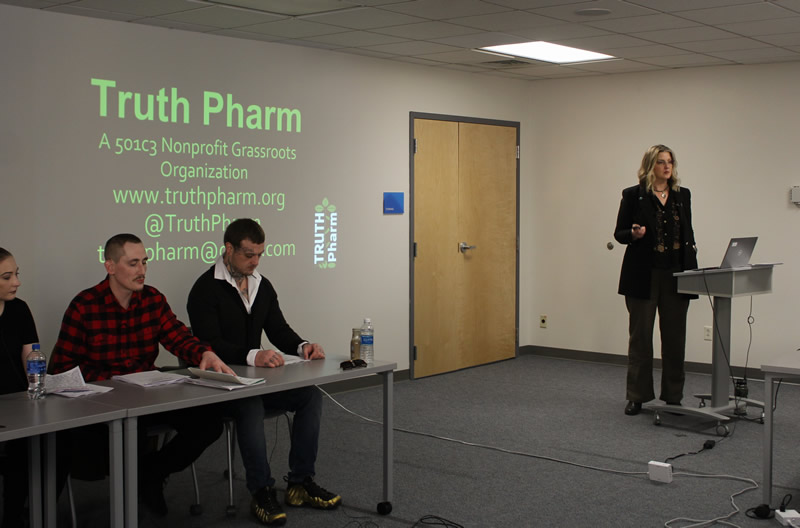On December 15, Truth Pharm led a presentation at Lourdes Hospital as part of the See
Me, Hear Me, Treat Me program. This program, sponsored by the HEALing Communities Study,
allows those who have struggled with substance use disorder to voice their concerns, share
their stories, and propose ideas on how to improve access to healthcare for others. See
Me, Hear Me, Treat Me gathers individuals in different stages of recovery, acknowledging their
hardships and making it easier for healthcare professionals to hear from those directly impacted
by their care. This is a step in the right direction, as people experiencing substance use disorder
often do not get their voices heard, and instead, are shunned.
The program focuses on discussing barriers that prevent people with substance use
disorder from obtaining medication. Additionally, it emphasizes defining steps to include the
patient’s perspective in treatment, as their needs and desires can often be overlooked in
medical settings. Lastly, emphasis is placed on listing actions that increase access and
maintenance of medication for opioid use disorder, as many treatments are costly or hard to
obtain.

Truth Pharm’s very own Alexis Pleus was one of the developers of the program,
accompanied by Benita Roth, Angela Riley, and Alana Gunn. The HEALing Communities Study,
founded by Columbia University, funded See Me, Hear Me, Treat Me in hopes of eliminating
bias and stigmas, expanding access to treatments, and improving service delivery for
medication for opioid use disorder. The program was developed through a data survey created
by Alexis Pleus, and a series of retreats welcoming people who have experience trying to obtain
medication for opioid use disorder to hear their perspectives and experiences related to MOUD,
healthcare providers, insurance, and pharmacies. Alexis, alongside Steve Lisman, a Ph. D
licensed psychologist, and two Binghamton University Psychology students, took notes and
collaborated on ideas that would benefit the community the most, and our contributors with lived
experience were provided training into developing their stories for panel discussion. The
resulting program provided an innovative and empathetic perspective for providers on the lived
experience of people with substance use disorder, backed with scientific data.